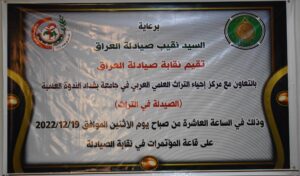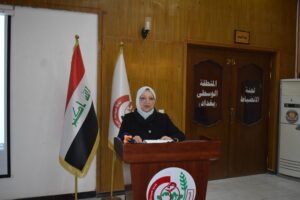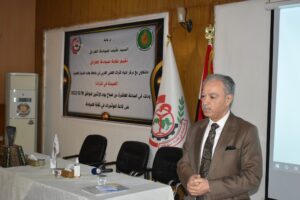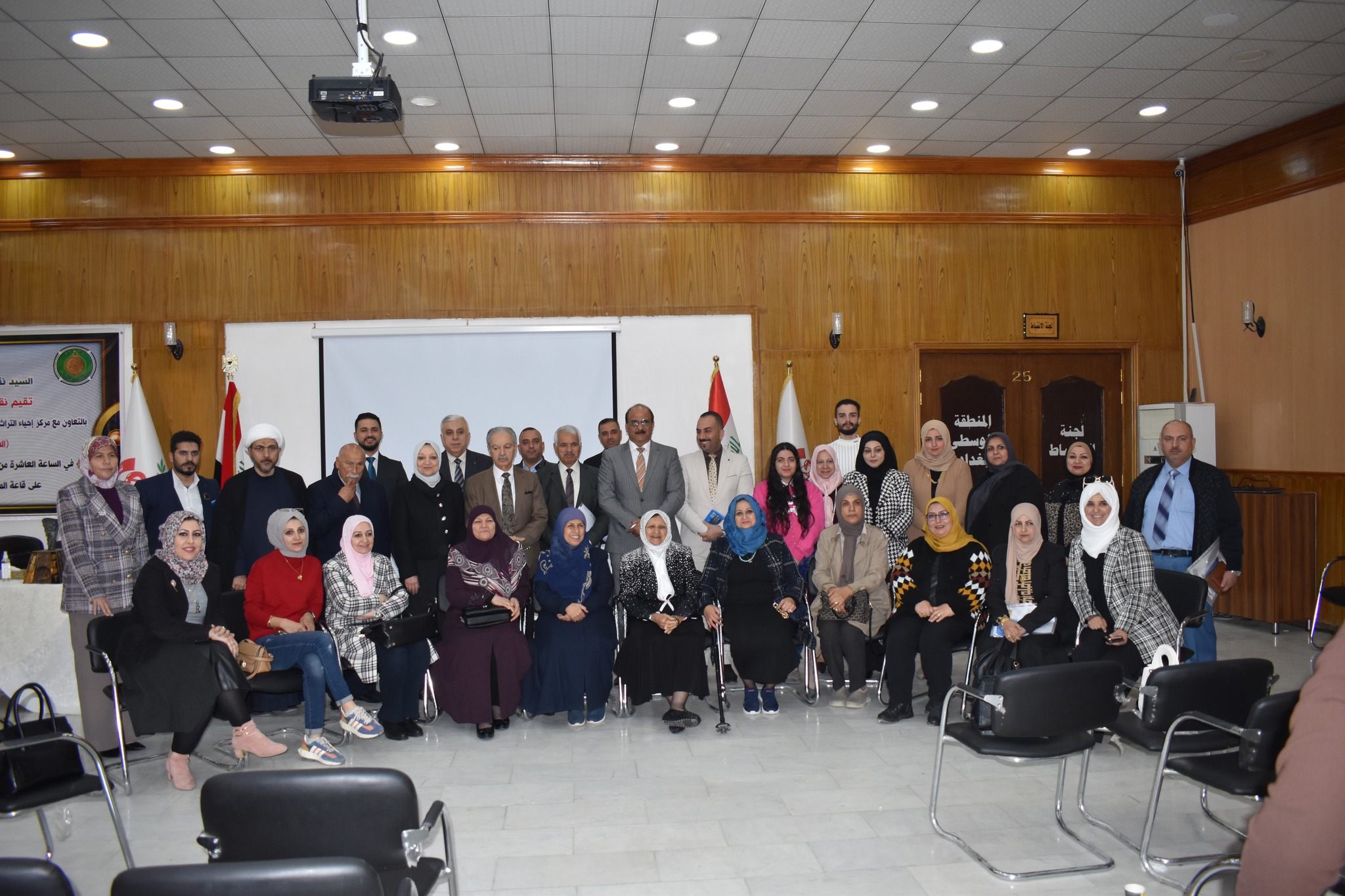The Center for the Revival of Arab Scientific Heritage at the University of Baghdad, in cooperation with the Iraqi Pharmacists Syndicate, organized on Monday morning 12/19/2022, in the conference hall of the Syndicate, and in the presence of a number of professors and researchers, a scientific symposium entitled (Pharmacology in Heritage). The symposium opened with a fragrant recitation From the Holy Qur’an recited by Prof. Dr. Taha Sabti Ibrahim, a teacher in our center, then the Republican salutations with the reading of Surat Al-Fatihah on the souls of the righteous martyrs, then the speech of the President of the Iraqi Pharmacists Syndicate, Prof. Dr. Mustafa Al-Hiti, welcoming the honorable guests, speaking about the history of pharmacy and its heritage, which has an impact on our present and its role The Syndicate of Pharmacists on the importance of heritage and its roots extending throughout history, then the speech of Professor Dr. Alaa Nafie Jassim, Director of the Center for the Revival of the Arab Scientific Heritage, speaking about the importance of herbs and the manufacture of medicine and weeds in medicine because of its importance in the treatment of diseases, mentioning the scientific process of the Heritage Revival Center and its role in Several fields, including pharmacy, then the symposium was divided into two sessions headed by Prof. Dr. Saadi Ibrahim Al-Daraji, head of pure sciences in our center, conducted the first research by the experienced professor, Nabila Abdel Moneim Daoud, and the title of her research was (The Role of the Arabs in the Use of Herbs and Medicinal Plants, Al-Jami’s Manuscript of the Characteristics of Plants as a Model), speaking about the role of the Arabs in developing the science of herbs and medicinal plants in heritage Arab scientific is not a legacy or bequeathed to the ancestors, but rather a collection of the experiences of the Arab nation in giving and contributing to the benefit, and that most of the studies that dealt with the scientific achievements of the Arabs focused on the most prominent of them, their role and influence, while neglecting other sources of no less importance than the Greek source, such as the Babylonian and Egyptian sources and what they created. Arab civilizations before Islam in terms of knowledge and science, where the Babylonian clay tablets created and in which there is a lot of knowledge, mentioning the transmission of Babylonian and Egyptian science to Greece through commercial contact, then Professor Dr. From the pharmacist and the pharmacist, I know from the pharmacist, and he is the professional in collecting medicines according to Ahmed, who photographed them, choosing the best of their types, based on the best compositions immortalized for him by medical experts, and these are the first ranks of the medical industry. He relied on Hama Al-Asbahani a lot, and secondly, the frequent use of sandalwood in the profession of pharmacist earned him this title, and thirdly, that the Arabs did not single out a name or an affinity for practitioners and herbalists. Lagash) includes a branch of a tree wrapped around it by two snakes. This tablet is located in the Louvre Museum in Paris, whose story was taken from the story of Gilgamesh and dates back to 2144 BC. In conclusion, the shield of creativity was donated from the Heritage Revival Center to the Syndicate, and the shield of the Syndicate was received for our center We wish them continued success.












